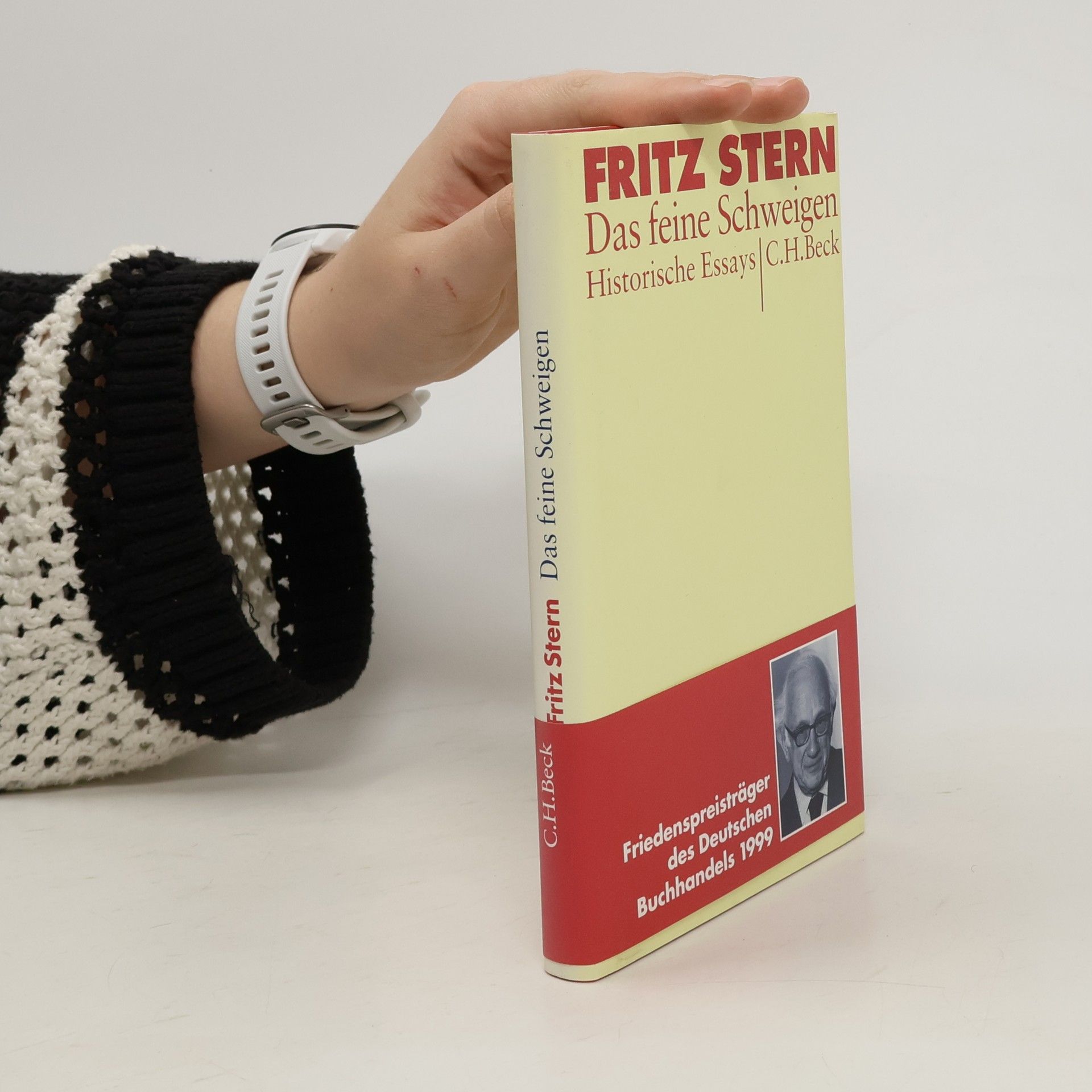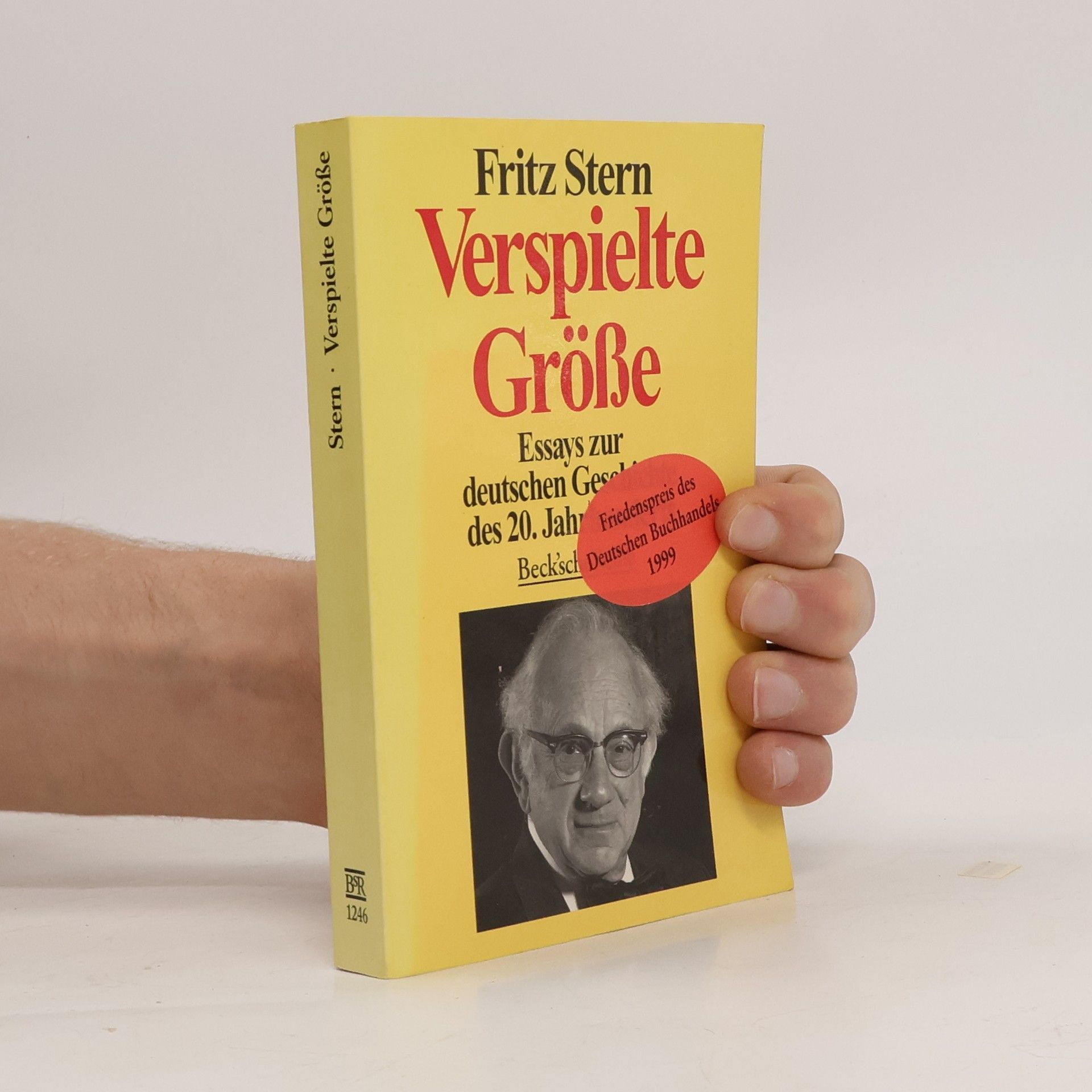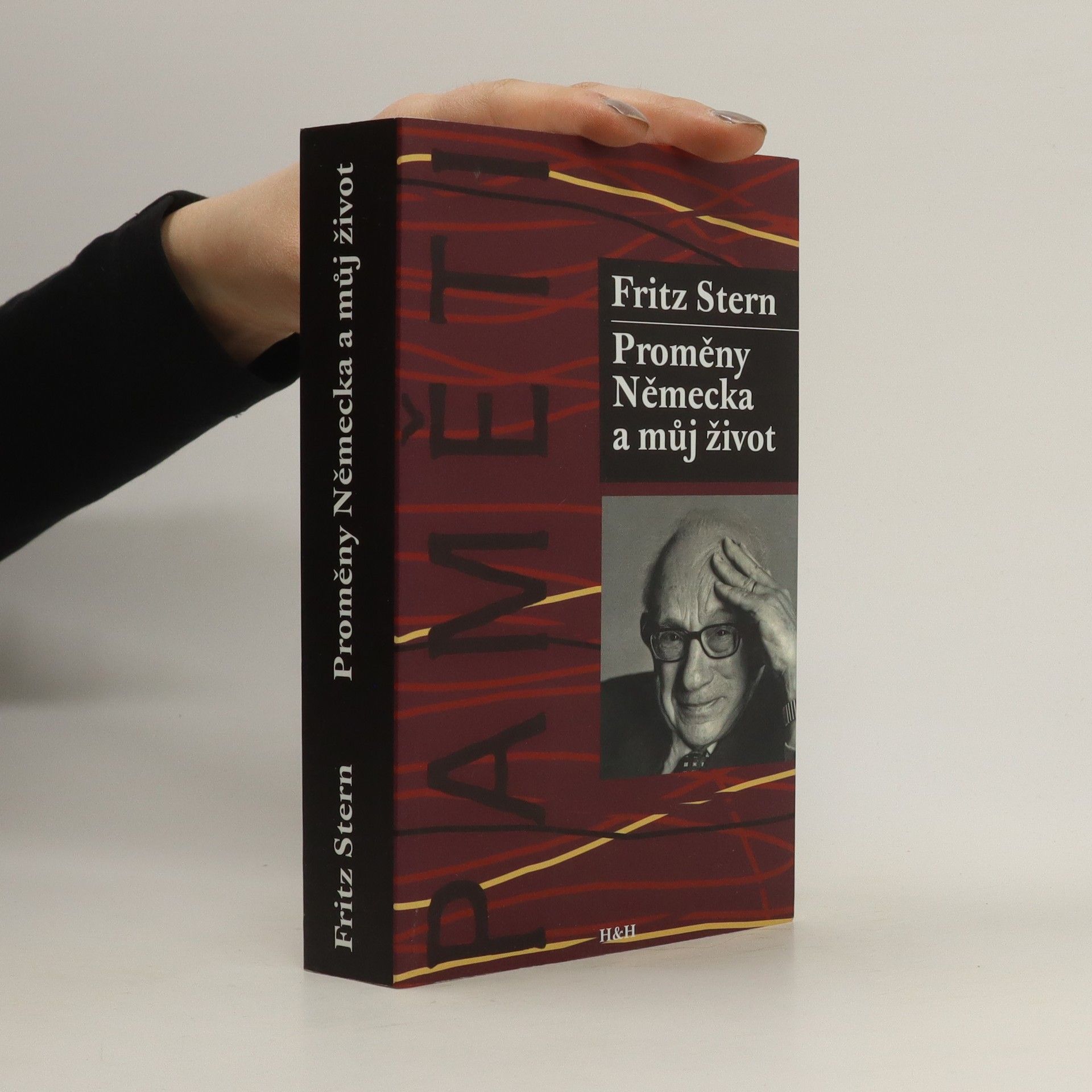De relatie tussen de Duitse staatsman Von Bismarck (1815-1898) en zijn joodse bankier Bleichröder tegen de achtergrond van de financiële, politieke en sociale ontwikkelingen in het negentiende eeuwse Duitsland.
Fritz Stern Boeken
Fritz Richard Stern was een vooraanstaand historicus wiens werk diep inging op de opkomst van het nationaal-socialisme in Duitsland. Hij volgde de oorsprong van de nazibeweging terug naar de 19e-eeuwse völkische beweging, en identificeerde deze als een gevolg van de 'politiek van culturele wanhoop' onder Duitse intellectuelen. Stern verwierp de interpretatie van de Duitse geschiedenis als een uniek pad van aristocratie naar democratie, en benadrukte in plaats daarvan de complexe relatie tussen Duitse en Joodse culturen. Hij onderzocht uitvoerig de 'Joods-Duitse symbiose' en de manifestaties daarvan binnen de Duitse samenleving.




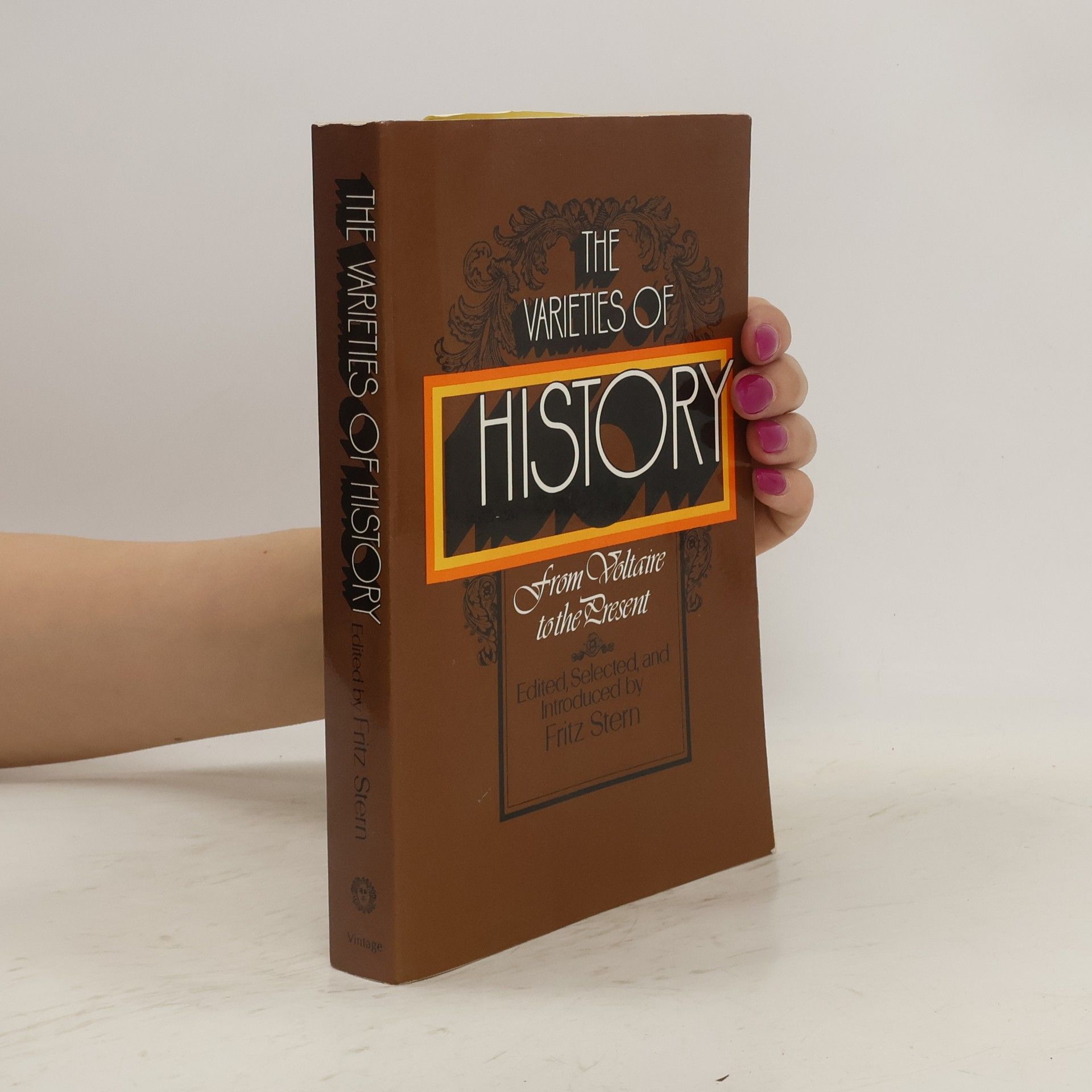
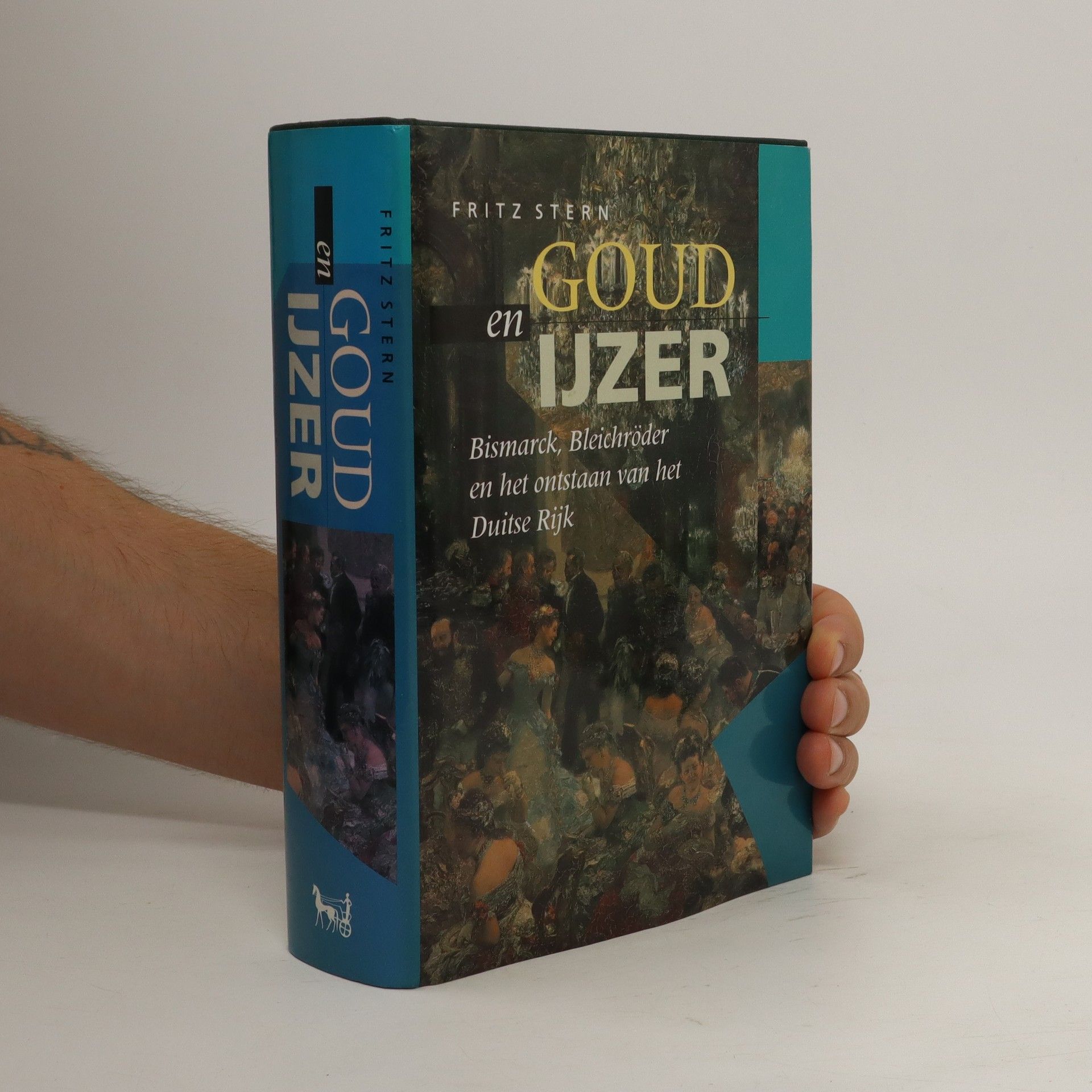
The Varieties of History
From Voltaire to the Present
From Voltaire to Marx and Engels, this anthology explores history from the viewpoint of historians. The text includes influential works such as “The New Philosophical History” by Voltaire, “History as Biography” by Thomas Carlyle, and “A New Economic History” by R. W. Fogel."I cannot imagine a more engaging and instructive introduction to the fascinations of historical writing than Fritz Stern's classic The Varieties of History. "—Arthur Schlesinger, Jr., City University of New York"This book contains not only an excellent selection of passages which characterize the ideas and the work of leading historians from the eighteenth to the twentieth centuries, but the book in its entirety provides a stimulating survey of the entire development of modern historiography."—Felix Gilbert, The Institute for Advanced Study"It is by all odds the best kind of introduction to the study and, what is more, to the enjoyment, of history."—Crane Brinton
„Fangen Sie an, Fritz“ - mit diesem Satz beginnt ein Gespräch unter Freunden. Helmut Schmidt und Fritz Stern kennen sich seit vielen Jahren und haben sich im Sommer 2009 zusammengesetzt, um über Themen miteinander zu reden, die ihnen am Herzen liegen: Erfahrungen und Lehren aus der Geschichte, das gemeinsam erlebte Jahrhundert, Menschen, die ihnen begegnet sind. Das Ergebnis ist ein ebenso anregendes wie kurzweiliges, freimütiges und nicht selten witziges Buch, in dem sich der Politiker und der Historiker die Bälle zuspielen, mal im Konsens, mal im Widerspruch, stets auf eine pointierte Darlegung ihrer eigenen Positionen bedacht. Das Spektrum der behandelten Fragen reicht von Bismarck bis Israel, vom Zweiten Weltkrieg bis zum Aufstieg Chinas, vom Rückblick auf die Ära Bush bis zu den überhöhten Boni für Banker - und auch die Anekdoten kommen nicht zu kurz. Zwei kluge alte Männer streifen durch das 20. Jahrhundert und die Welt von heute, und der Leser genehmigt sich eine Prise Weisheit.
Der Historiker Fritz Stern erforscht die schwierige Geschichte Deutschlands, der Heimat aus der er vertrieben wurde: 'Die Deutschen lehrten uns die Geschichte, wie sie sie gelebt haben: sublim und grausam.' Im Mittelpunkt seiner Essays steht die Frage, warum so viele Deutsche Hitlers Einfluss erlagen. Mit großem Scharfsinn macht der Autor die Versuchung des Nationalsozialismus begreiflich.
Dieser Beitrag zur Erforschung des modernen Totalitarismus aus der Feder eines der kenntnisreichsten und einfühlsamsten Deutschland-Historiker zählt zu den 100 einflußreichsten Büchern seit 1945 (Times Literary Supplement). Jetzt endlich wieder auf Deutsch lieferbar! Ein glänzender Kenner der jüngeren deutschen Geschichte und ein Mann - von faszinierender Darstellungskraft ... Helmut Schmidt (Die ZEIT) ... Ich habe alles, was er über den Verlauf und die politische Ideengeschichte Deutschlands schrieb, verschlungen. Für mich ist er ein so faszinierender Historiker, weil er nicht nur die ökonomischen Zusammenhänge und historischen Gegebenheiten darstellt, sondern stets auch die kulturellen Wurzeln erforscht und Biographien der Persönlichkeiten schildert, die die jeweilige Zeit geprägt haben ... Marion Gräfin Dönhoff Fritz Stern bringt uns die Geschichte Deutschlands in ihrer Widersprüchlichkeit, in ihrer Komplexität und Wechselhaftigkeit mit unnachahmlicher Eleganz und erzählerischer Verve nahe. Der Historiker fesselt uns als Erzähler ... Petra Roth, Oberbürgermeisterin der Stadt Frankfurt / Main
Der große Historiker Fritz Stern betrachtet die deutsche Geschichte durch das Prisma seines eigenen Lebens. In den Zwanzigerjahren als Sohn einer deutschjüdischen Arztfamilie in Breslau geboren, erlebte er als Kind die gewalttätigen politischen Auseinandersetzungen der späten Weimarer Republik und die ersten fünf Jahre des NS-Regimes. 1938 konnte die Familie in die USA emigrieren. Fritz Stern verbindet die entscheidenden und auch dramatischen Episoden seiner Biografie mit der konzisen Darstellung der historischen Ereignisse und scharfsinnigen Analysen zu einem facettenreichen Porträt der fünf deutschen Staaten, die er miterlebt hat: von der Weimarer Republik über das Dritte Reich, die Bundesrepublik und die DDR bis zum heutigen wiedervereinigten Deutschland. »Ein weises und tief berührendes Buch der Erinnerung« Louis Begley
Moderne Historiker
Klassische Texte von Voltaire bis zur Gegenwart
Eines der erfolgreichsten Bücher von Fritz Stern ist – eine Anthologie. Zwei Ziele hatte der noch junge Historiker vor Augen, als er vor mehr als einem halben Jahrhundert die erste von vielen Auflagen herausbrachte: Er wollte die Betrachtungen ganz unterschiedlicher Historiker über die großen Fragen der Geschichte vorstellen und zugleich den Leser mit den wichtigsten Tendenzen der Geschichtsschreibung seit der Mitte des 18. Jahrhunderts vertraut machen. Das Ergebnis war ein Geniestreich, ein Füllhorn historischer Reflexionen, das nicht nur die Kunst und Vielfalt der Geschichtsschreibung ausbreitet, sondern auch ihre Irrwege nicht verschweigt. Meisterhistoriker wie Voltaire, Macaulay oder Theodor Mommsen sind hier deshalb ebenso kennenzulernen wie das Geschichtsbild der Diktaturen des 20. Jahrhunderts. Gemeinsam mit Jürgen Osterhammel hat Fritz Stern diesen Klassiker unter den historischen Anthologien nun grundlegend überarbeitet und dabei so aktualisiert, dass die Entwicklungen der letzten Jahrzehnte bis hin zur Geschichte der Globalisierung und der Überwindung des Eurozentrismus ihren Platz gefunden haben.
Das neue Buch von Fritz Stern vereint Vorträge der letzten Jahre, die meisterhafte Porträts großer Persönlichkeiten wie Jacob Burckhardt und Max Planck sowie eindringliche Essays zur deutschen Geschichte des 20. Jahrhunderts enthalten. Allen Beiträgen ist ein zentrales Thema gemeinsam: das Schweigen. Der Titel greift ein Wort von Friedrich Nietzsche über Goethe und die Deutschen auf, das auf das „feine Schweigen“ verweist, das zunächst Ausdruck von Distanz war, sich später jedoch in Schweigen über Unrecht, Wegsehen und die Duldung von Verbrechen verwandelte. Fritz Stern beschreibt dieses „Wir wollten es nicht sehen“ als Signatur unseres Jahrhunderts. Dennoch zeigt das Buch auch, dass es bedeutende Momente gab, in denen der Wille „in der Wahrheit zu leben“ (Vaclav Havel) sich gegen das Schweigen durchsetzte und totalitäre Regimes herausforderte. Ungarn, die Tschechoslowakei, Polen und die DDR sind eindrucksvolle Beispiele dafür. Ulrich Raulff hebt hervor, dass, obwohl die Historie Sterns Muse ist, die Gegenwart für ihn stets die erste Verpflichtung bleibt. Seine Kenntnisse der Vergangenheit bieten klare Antworten auf aktuelle Fragen.
Verspielte Größe
- 317bladzijden
- 12 uur lezen
Ein Ausspruch von Raymond Aron klingt wie ein Motto zu diesem Buch: „Es hätte Deutschlands Jahrhundert sein können.“ Aber die Größe, die möglich schien, wurde verspielt. Davon spricht Fritz Stern, der bedeutende Historiker, in den Essays dieses Buches. Zugleich aber weist er mahnend darauf hin, daß Deutschland eine „zweite Chance“ hat, eine Chance freilich, die es nur wahrnehmen kann durch behutsames Umgehen mit der neuen Macht.
Proměny Německa a můj život
- 676bladzijden
- 24 uur lezen

